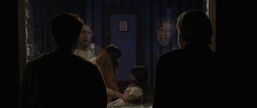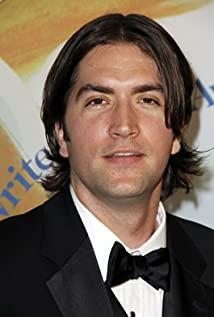Text/Aaron
Interesting movies, which look like Identity (Fatal ID) in form, are actually on the same time and space stage (also in the Blizzard Mountain Village model) and connected the major events of the 1960s in the United States: the black civil rights movement, the Vietnam War, and the lawless Hoover FBI, Manson family, etc.
From another perspective, this film can be said to be a film devoted to crime. It divides all these crimes into three categories, which I want to call conventional crime, state crime & cult crime.
Robbery, improper defense (or impulsive murder), mental breakdown, drug use, etc. belong to the first category of crimes. The perpetrators of these crimes are portrayed in the film to be sympathetic, sympathetic and excusable.
The other two types of crimes are much more abominable, and they are the real targets of the film's criticism. The FBI’s wiretapping and monitoring of citizens’ privacy is a political threat, including the bloody killing of young people in the tropical jungles of South Vietnam and the military decisions behind them. These are all state crimes.
And with seemingly profound but nonsense charming conversations, tempted young people from backcountry, running away from home, and not deeply involved in life, and then use rock music, sex and psychedelic drugs to control them, serve their selfish desires, and of course the evil cult leader is cult crime.
The film also reveals the meaning that the first type of crime is often the outgrowth of the second or third type of crime, so it is the person who is really responsible for it. Emily is so impulsive and tough to protect her brainwashed sister from falling into the claws again; and why did Miles turn from a calm sharpshooter to a cringing and incompetent drug junkie? That was because the war ruined him. And his country still further exploited and squeezed him after he was discharged from the military (probably because of a mental breakdown and incapacity and was forced to retire from active service), and let him manage the black shop at the junction of the two states-on the surface it is an ordinary Motel. It was actually an eavesdropping point deployed by the FBI.
And the respectable Director Hoover used more than him alone? The loyal Special Agent Broadbeck probably didn't expect it until his death. He thought he was performing a special forensics task, but he was actually acting as a traffic officer for the FBI's secret surveillance program.
Broadbeck and Miles are actually good people. Although the director strictly ordered to get back the surveillance records and it's all done, don't make any extravagances (because this is the real function of opening this hotel, and they are the only thing they care about), but as a law enforcer, facing the kidnapping case of the girl is ignored, no matter how hard it is, especially From the standpoint of a man who also has a daughter. And it was this disobeying of a direct order-this stepping out of line-that cost his life.
As for Miles, after returning from the war, he vowed not to kill again. In order to rescue his dead companions, he raised his guns and smashed his heroic demeanor. Not to mention, his heart is extremely soft. Because he didn't want to hurt a big person who was kind and friendly to a small person of his own, he hid the secret surveillance materials that should have been turned in containing this big person's private life. By the way, this big man should be Dr King or be based on him.
Let us finally take a look at the ending of the film to put an end to the turbulent times:
-The destruction of the Cult family group heralds the final decline of the hippie movement that has become intrigued;
-Miles' dying confession, marking the embarrassing end of the Vietnam War and the speechless pain left in the hearts of generations;
-The old man and the black female singer threw Miles's privately-hidden eavesdropping materials into the fire when they left, which means that Chief Hoover did not get what he wanted, and the civil rights movement would not be blocked by this despicable trick;
-The hotel has also become a scene of fire, and a secret surveillance site will be turned into ashes, announcing the end of the era of Hoover and even later Nixon's use of wiretapping as a political weapon.
Of the two people who walked out of the hotel alive, one was an old-school gentleman who had spent fifteen years in prison for robbery (but! Not! Killed! People!), who had been crippled for years and had few days to come due to family genetic diseases. Going to Pub to sing does not accept the unspoken rules in exchange for the prosperous women of color in the recording industry. He looked at her from the stage, retreating to the background of the old era and watching the new era onto the stage. An agreed fulfillment.
Dec 24, 2018
View more about Bad Times at the El Royale reviews











